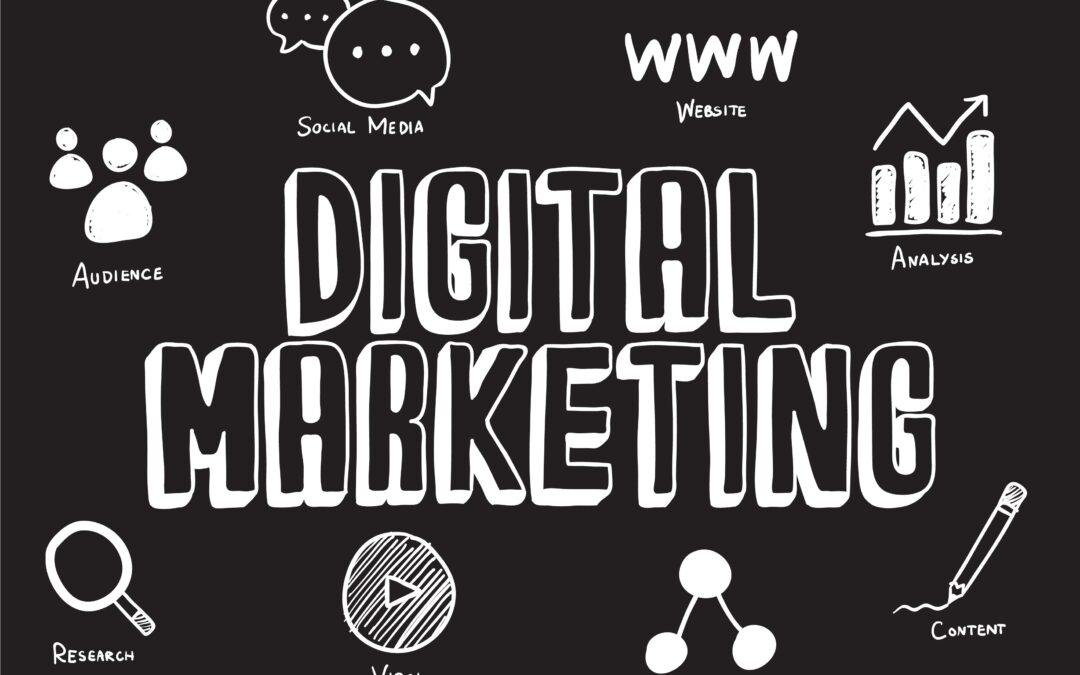In today’s digital era, businesses need to evolve alongside emerging technologies and changing consumer habits. One of the most critical strategies is digital marketing, which uses online platforms and tools to promote products or services. Here’s a detailed explanation of digital marketing and its importance for modern businesses.
What is Digital Marketing?
Digital marketing involves leveraging online platforms like websites, social media, email, search engines, and mobile applications to connect with and engage customers. Unlike traditional marketing, it allows businesses to interact with their target audience in real-time, creating a personalized and measurable approach to promotion.
Core Components :
- Search Engine Optimization (SEO):
Enhancing a website’s visibility on search engines to rank higher and attract organic traffic. - Content Marketing:
Creating and sharing valuable and relevant content to captivate and maintain the interest of a specific audience. - Social Media Marketing (SMM):
Leveraging platforms like Facebook, Instagram, and LinkedIn to connect with customers. - Pay-Per-Click Advertising (PPC):
Paid campaigns on search engines or social media to drive traffic. - Email Marketing:
Connecting with customers by sending personalized and strategically targeted email campaigns to build relationships and drive conversions. - Affiliate Marketing:
Collaborating with affiliates who promote your products or services in exchange for a commission on successful sales.
Importance of digital marketing in Modern Business

- Global Reach:
Digital marketing breaks geographical barriers, allowing businesses to reach customers worldwide. A small business can target an international audience with a well-designed online campaign. - Cost-Effective:
Compared to traditional marketing, digital marketing is more affordable and delivers higher ROI. Small businesses can run impactful campaigns without significant budgets. - Targeted Marketing:
Platforms such as Google Ads and Facebook Ads enable businesses to reach specific audiences by targeting their demographics, interests, and online behaviors. This precision ensures higher conversion rates. - Real-Time Analytics:
Digital marketing provides instant insights into campaign performance, enabling businesses to adjust strategies quickly for better results. - Customer Engagement:
Through social media, live chats, and personalized email campaigns, companies can build meaningful relationships with customers. - Enhanced Brand Awareness:
With consistent digital efforts, companies can strengthen their brand image and recognition, making them more memorable to potential customers. - Level Playing Field:
Digital marketing provides small businesses with the resources to compete with bigger companies, giving them a fair chance to connect with their target audience.
Why is it Crucial for Modern Businesses?
- Adaptation to Consumer Behavior:
Today’s consumers are online. They research, shop, and interact with brands digitally. Businesses without a digital presence face the risk of being ignored by potential customers. - Increased Competition:
With more businesses entering the market, standing out is essential. Digital marketing provides innovative ways to showcase a brand’s unique value. - Scalability and Flexibility:
Digital marketing campaigns can be scaled up or down depending on business needs, ensuring cost efficiency and adaptability.

Conclusion
Digital marketing is no longer optional; it’s a necessity for businesses aiming for growth and success. By leveraging its various components, companies can connect with their audience, build trust, and stay ahead of the competition. Embracing digital marketing ensures that businesses remain relevant in a rapidly evolving digital world.Investing in digital strategies today will secure long-term growth and customer loyalty for the future.

